October 9, 2020:
A Big Ten Cancer Research Consortium phase II study for adult patients with advanced salivary gland carcinoma that is androgen receptor positive (AR+), will test the combined therapy of the PD-1 inhibitor pembrolizumab and the androgen deprivation therapy goserelin. This multi-site study is now open to accrual at the University of Illinois Cancer Center (University of Illinois at Chicago); Holden Comprehensive Cancer Center, University of Iowa; University of Maryland Marlene and Stewart Greenebaum Comprehensive Cancer Center; University of Michigan Rogel Cancer Center; Masonic Cancer Center, University of Minnesota; Robert H. Lurie Comprehensive Cancer Center of Northwestern University; and University of Wisconsin Carbone Cancer Center.
The study, BTCRC-HN17-111, “Phase II trial of androgen deprivation therapy (ADT) and pembrolizumab for advanced stage androgen receptor-positive salivary gland carcinoma,” is being conducted to see whether blocking receptors in AR+ salivary gland tumors will cause the cells to stop growing or cause cell death.
Salivary gland tumors are rare, with an incidence of approximately 2.5 to 3 cases per 100,000 annually in the Western world, and account for 3 to 5 percent of all head and neck cancers. Currently, there is no standard therapy for treating this type of cancer. Patients with advanced AR+ salivary gland tumors are usually treated with either surgery, radiation, or chemotherapy.
“The objective of this study is to test the hypothesis that hormonal therapy with androgen deprivation therapy will increase the response rate to immunotherapy with pembrolizumab,” said Manish Patel, DO, sponsor-investigator of the study and a medical oncologist at the University of Minnesota Department of Medicine, Division of Hematology, Oncology and Transplantation. “What we will be looking at is the objective response rate or disease control with this combination in patients with androgen receptor positive salivary gland tumors.” Read More
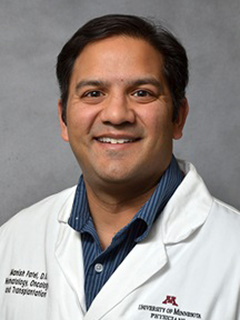


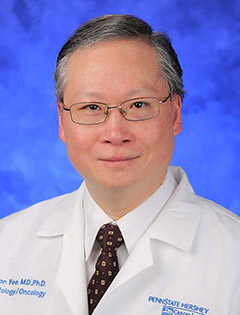
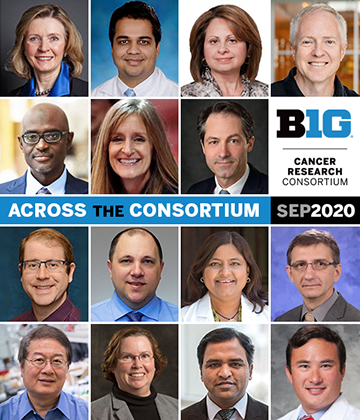 In this month’s Across the Consortium, the Big Ten Cancer Research Consortium (Big Ten CRC) highlights a variety of activities and accomplishments across universities. From new cancer drugs, to grant awards and new methods of treatments, researchers stop at nothing to continue to fight against cancer.
In this month’s Across the Consortium, the Big Ten Cancer Research Consortium (Big Ten CRC) highlights a variety of activities and accomplishments across universities. From new cancer drugs, to grant awards and new methods of treatments, researchers stop at nothing to continue to fight against cancer. 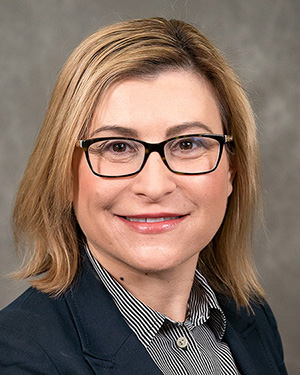 This month, the Big Ten Cancer Research Consortium highlights the
This month, the Big Ten Cancer Research Consortium highlights the 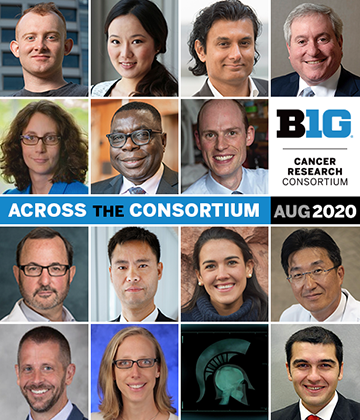 In this month’s Across the Consortium, the Big Ten Cancer Research Consortium (Big Ten CRC) highlights investigators focusing on breast cancer research and recent grants awarded to researchers and cancer centers across the Big Ten CRC.
In this month’s Across the Consortium, the Big Ten Cancer Research Consortium (Big Ten CRC) highlights investigators focusing on breast cancer research and recent grants awarded to researchers and cancer centers across the Big Ten CRC. 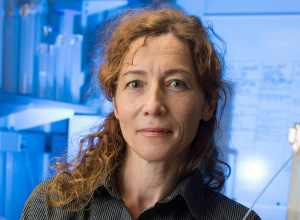
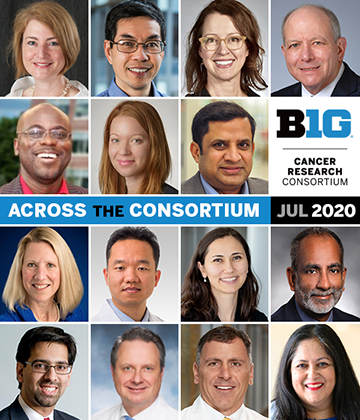 In this month’s Across the Consortium, the Big Ten Cancer Research Consortium (Big Ten CRC) highlights research on disparities when treating and diagnosing cancers, developments in cellular, genomic research, blood diseases, and big data, and ongoing growth at member cancer centers.
In this month’s Across the Consortium, the Big Ten Cancer Research Consortium (Big Ten CRC) highlights research on disparities when treating and diagnosing cancers, developments in cellular, genomic research, blood diseases, and big data, and ongoing growth at member cancer centers. 













Subscribe to the Big Ten CRC Newsletter X
X Facebook
Facebook YouTube
YouTube